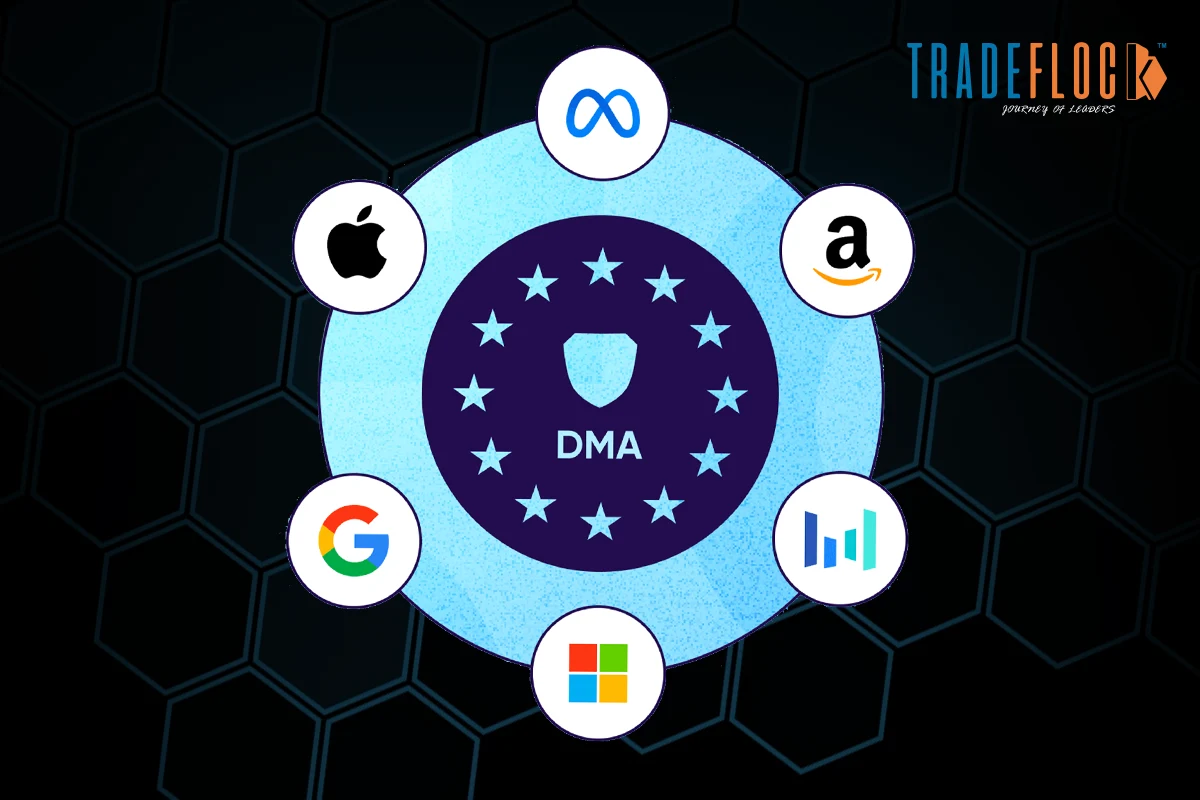Big Tech often feels untouchable. In 2024, the European Union fired a shot that echoes across Silicon Valley. Enacted in 2022 and coming into force in March 2024, the Digital Markets Act is far more than another layer of European regulation. Beneath the surface, it represents a bold and far-reaching effort to curb the dominance of the world’s biggest tech giants, many of them stamped with a “Made in the USA” tag.
From Apple to Google, Meta to Amazon, the tech titans of America are being forced to reckon with new rules that challenge how they operate in one of their most lucrative markets. So, what’s really at stake here?
Table of Contents
The Law That Dares to Say “No”
The DMA targets platforms so dominant that they effectively control the digital market. To qualify, a company must have over 45 million monthly active users and over €7.5 billion in annual turnover within the EU. That narrows the field down to a handful of companies, and yes, nearly all are American.
As per a European Commission report, the DMA aims to make digital markets “fairer and more contestable.” This translates to requiring platforms to open up their ecosystems, ban self-preferencing in search results, and ensure interoperability between messaging services. For example, WhatsApp might need to communicate with Signal or Telegram. Google won’t be able to put its products at the top of a search page just because they belong to Google.
U.S. Giants Are Already Feeling the Heat
Under the DMA, Apple has been compelled to allow third-party app stores and payment systems on iOS devices in the EU. This is a radical shift for a company that has famously kept its garden walled and profitable. According to Verge, Apple is also under continued investigation for potentially non-compliant practices in its App Store policies and advertising systems.
Then there’s Meta. In March 2024, the company launched a “pay or consent” model in the EU. As per this model, users could either pay a subscription for ad-free Facebook and Instagram, or agree to have their data used for targeted ads. That didn’t fly with regulators. The European Data Protection Board ruled it insufficient under the DMA, resulting in a fine of €200 million, as reported by The Verge.
Google is also under the spotlight for allegedly bundling its services, from Chrome to Google Maps, in ways that could hinder competition. As reported by BBC News, regulators are probing the company for suspected “self-preferencing” within its advertising ecosystem.
An Existential Threat or Just Growing Pains?
It’s easy to view the DMA as a sledgehammer. But for tech companies that thrive on agility, it could also be a call to evolve. In a 2023 McKinsey & Company analysis, researchers noted that compliance with laws like the DMA “could force tech firms to reassess product offerings and entire business models.” That might mean less data hoarding, more transparency in algorithms, and real user control over digital identities.
More dramatically, some experts see this as the beginning of the end for the “walled garden” approach. Think Apple’s closed iOS system or Meta’s vertically integrated ad network. These approaches have made billions but might no longer be legally sustainable in Europe.
Transatlantic Tensions Are Rising
There’s more to the DMA than platform tweaks. U.S. policymakers have raised concerns that the law unfairly targets American firms. In a 2024 J.P. Morgan briefing analysts called the DMA “a trade irritant in the making,” noting that European firms like SAP or Spotify, though sizable, haven’t been scrutinized under the same lens.
A Center for European Policy Analysis (CEPA) article also warned that the DMA could deepen trade tensions if perceived as a protectionist move disguised as consumer advocacy. The timing doesn’t help: global tech supply chains are already fragile, and geopolitical tensions are at an all-time high.
The Brussels Effect: Global Ripples from EU Regulation
Though the DMA only applies to the EU, its influence could stretch far beyond. This is what policy experts call the “Brussels Effect”—when companies adapt globally just to comply with EU rules, because building different systems for different regions is too expensive or inefficient. A 2024 Harvard Business Review article put it bluntly: “The DMA is Europe’s attempt to export its regulatory philosophy to the world. And it might succeed.” If Apple builds an interoperable App Store for Europe, why not just roll it out globally?
What Happens Next?
For the U.S. tech giants, the path forward is clear but rocky. They must either comply, adapt their products, or risk massive fines, up to 10% of global turnover, or even 20% for repeat violations. To put that in context, for a company like Alphabet (Google’s parent company), that could mean tens of billions of dollars.






